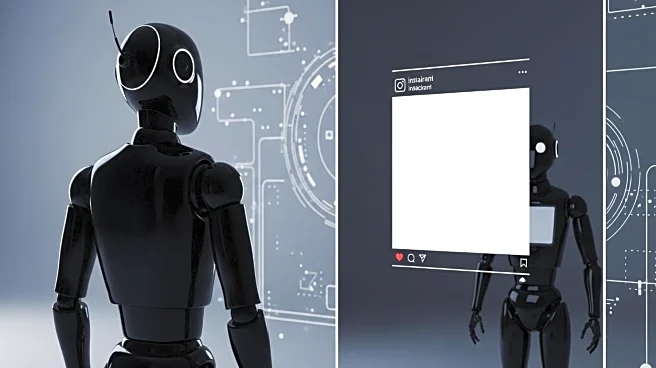What's Happening?
Sam Altman, a prominent figure in the tech industry, has expressed concerns about the authenticity of social media posts, particularly on platforms like AI Twitter and AI Reddit. Altman noted that these platforms now feel distinctly 'fake' due to the rise of bots. This observation came after Altman engaged with posts on the r/Claudecode subreddit, which were praising OpenAI Codex. He questioned the genuineness of these posts, suspecting that many might be generated by bots. Altman highlighted several factors contributing to this perception, including the adoption of LLM-speak by real users, the influence of social media engagement optimization, and potential astroturfing by competitors. This situation underscores the challenge of maintaining genuine human interaction in an increasingly automated digital environment.
Why It's Important?
The proliferation of bots on social media platforms has significant implications for digital communication and public discourse. As bots become more sophisticated, distinguishing between human-generated and bot-generated content becomes increasingly difficult, potentially undermining trust in online interactions. This issue is particularly relevant for industries reliant on social media for marketing and engagement, as the authenticity of user interactions can impact brand reputation and consumer trust. Furthermore, the rise of bots poses challenges for policymakers and tech companies in regulating digital spaces to ensure transparency and accountability. Altman's concerns highlight the need for robust measures to address the impact of automation on social media dynamics.
What's Next?
The ongoing debate about the role of bots in social media may prompt tech companies to implement stricter verification processes to ensure the authenticity of user-generated content. Additionally, there may be increased pressure on platforms to develop technologies that can effectively identify and mitigate bot activity. Policymakers might also consider introducing regulations to address the ethical and legal implications of automated content generation. As the conversation around digital authenticity continues, stakeholders across the tech industry will likely explore innovative solutions to preserve genuine human interaction online.
Beyond the Headlines
The rise of bots on social media platforms raises broader ethical questions about the nature of digital communication and the responsibility of tech companies in fostering authentic interactions. As AI technologies continue to evolve, there is a risk that human communication could become increasingly influenced by automated systems, potentially leading to a homogenization of online discourse. This development could have long-term cultural implications, affecting how individuals perceive and engage with digital content. Addressing these challenges will require a collaborative effort from tech companies, policymakers, and civil society to ensure that digital spaces remain conducive to meaningful human interaction.











